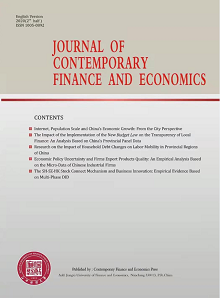|
|
Has Imported Product Variety Raised Corporate Cost-Plus?
XU Tong-sheng, FANG Yu-xia
2020, 0(2):
81-93.
By employing the difference-in-difference method and the instrumental variable method, this paper matches China Industry Business Performance Database with the customs statistical database from 2000 to 2007 to study the impact of imported product variety on corporate cost-plus. The results indicate that, in general, there is U-shaped relationship between the imported product variety and corporate cost-plus, that is to say, with the increase of imported product variety, the corporate cost-plus would fall down. When the imported product variety reaches a certain threshold value, the corporate cost-plus will go up. Viewing from the sub-samples, the impact of the imported product variety on the corporate cost-plus has obvious heterogeneity, which depends on the type of corporate import trade, corporate technical level, the types of imported products and the location of the enterprises. The mechanism test shows that competitive effects and technology spillover effects are the channels through which the imported product variety affects the corporate cost-plus. Therefore, in order to increase corporate cost-plus, enterprises should continuously increase the imported product variety, and the government should adopt different import development strategies against the different technical levels, different regions, different trade types, and different types of products.
References |
Related Articles |
Metrics
|

